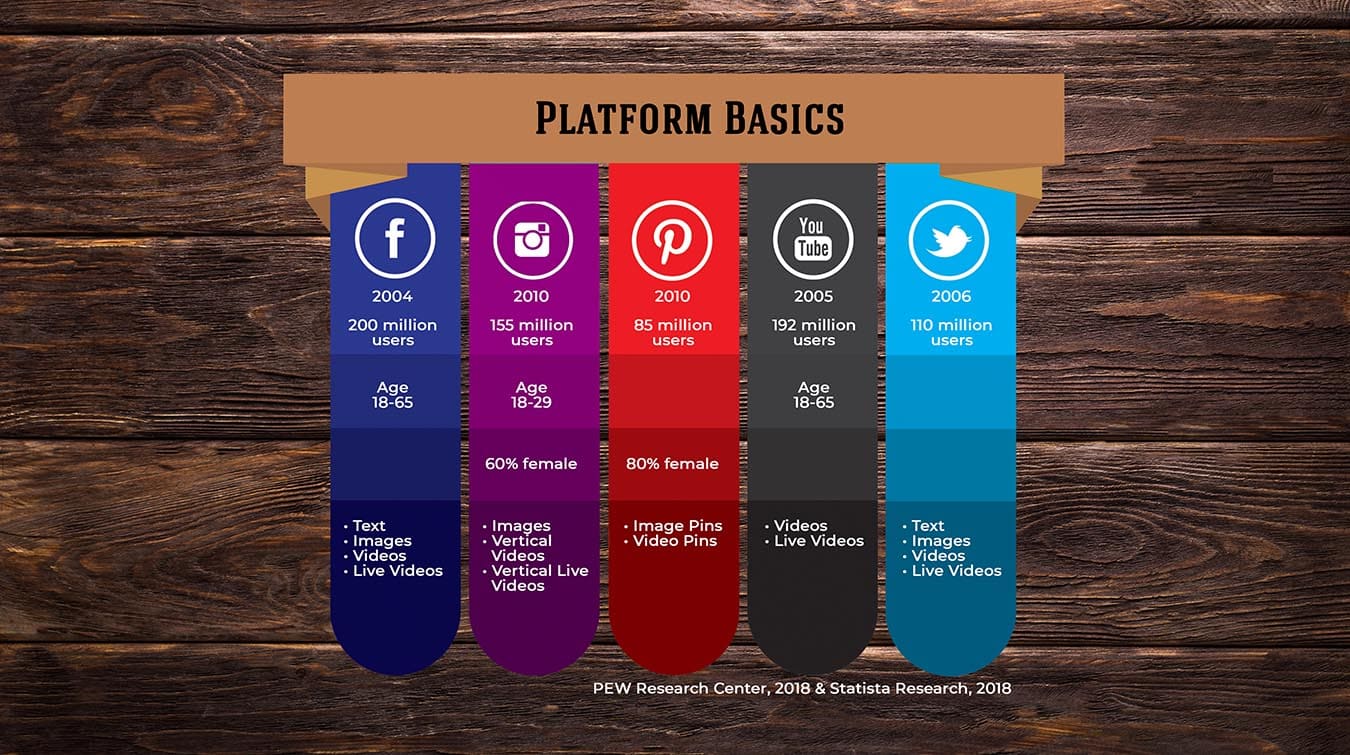Introduction
In the digital age, social media has become an indispensable tool for brand marketing and communication. However, not all social media platforms are created equal, and choosing the right ones for your brand is a critical decision. In this article, we’ll explore the factors to consider and strategies for selecting the most suitable social media platforms to align with your brand’s objectives and target audience.
Understand Your Audience
Before diving into the world of social media, it’s essential to have a deep understanding of your target audience. Ask yourself questions such as:
- What is the age range of your audience?
- Where are they located geographically?
- What are their interests and behaviors?
- What problems or needs does your product or service address for them?
By developing detailed buyer personas, you can gain insight into which social media platforms your audience is most active on and how they engage with content.
Platform Demographics and User Behavior
Different social media platforms have distinct demographics and user behaviors. Here’s a snapshot of some popular platforms:
- Facebook: With a broad user base spanning various demographics, Facebook is an excellent platform for businesses targeting a wide audience.
- Instagram: Ideal for visually appealing and creative content, Instagram is popular among younger demographics and those interested in lifestyle and fashion.
- Twitter: Twitter is perfect for real-time updates, news, and engagement. It’s favored by users seeking quick, concise information.
- LinkedIn: If your brand caters to a professional audience or offers B2B services, LinkedIn is the go-to platform.
- Pinterest: Pinterest attracts users looking for inspiration, making it ideal for businesses in the fashion, food, and DIY niches.
- YouTube: For video content, YouTube is a powerhouse. It’s the second-largest search engine after Google and is perfect for visual storytelling.
- TikTok: With a predominantly younger audience, TikTok is suitable for brands that can create short, engaging videos.
Align with Your Brand’s Objectives
Each social media platform has unique features and strengths. To choose the right ones for your brand, align the platform’s capabilities with your objectives. For example:
- If your goal is to drive website traffic, platforms like Facebook and Twitter are effective for sharing links.
- For brand awareness and engagement, Instagram and Pinterest, with their visual appeal, are strong choices.
- If you aim to educate and build thought leadership, LinkedIn can be invaluable.
Competitor Analysis
Conduct a competitive analysis to see which platforms your competitors are active on and where they have the most engagement. While you don’t need to copy them, it’s a useful reference point for identifying where your audience might be.
Resources and Content Types
Consider the resources available to your brand. Different platforms require various levels of commitment in terms of time, budget, and content creation. Assess your capacity for producing content – whether it’s text, images, videos, or a mix – and choose platforms that align with your capabilities.
Testing and Iteration
Remember that your choice of social media platforms isn’t set in stone. It’s often beneficial to start with a selection, test the waters, and assess performance. Over time, you can refine your strategy by focusing on the platforms that yield the best results and shifting resources away from less productive channels.
Conclusion
Choosing the right social media platforms for your brand is a strategic decision that can significantly impact your digital marketing success. By understanding your audience, considering platform demographics and behaviors, aligning with your brand’s objectives, and assessing available resources, you can make informed choices that lead to effective social media marketing. Keep in mind that social media is a dynamic landscape, and staying adaptable and open to experimentation is key to ongoing success in the ever-evolving world of digital marketing.




